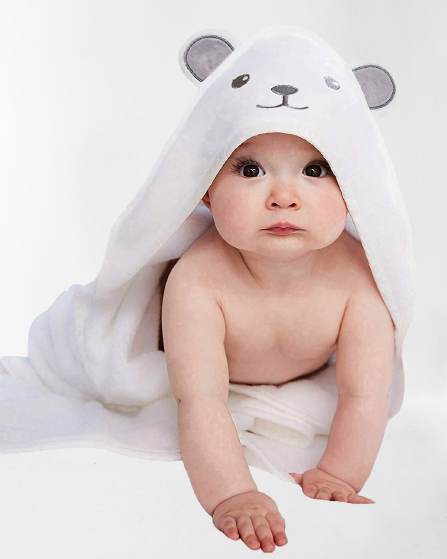HOW TO TAKE CARE OF A NEWBORN BABY : BABY CARE TIPS FOR NEW PARENTS
HOW TO TAKE CARE OF A BABY
Are you a new mom and you don’t know
how to take care of a newborn baby then you come to the right place. Here I am
going to share some baby care tips which will help you a lot to take care of
your newborn. Listen I am not a child specialist, I am just going to share my
experiences and some tips to care for your baby in a better way.
When it's
your first time taking care of a newborn, it's obvious that it's a challenge.
So, here are some suggestions to help you care for a newborn baby:
Feeding
It's critical to feed the baby on
time. A newborn needs to be fed every 2 to 3 hours, which means you'll have to
nurse her 8 to 12 times in 24 hours. For the first six months, a baby should
only be fed breast milk. Breast milk is rich in nutrients and antibodies that
are essential for a baby's survival and development. For at least 10 minutes,
breastfeed the baby. Hold the breast to your baby's lips until she firmly latches
on and begins sucking. The mother's nipples will not hurt if the baby has
latched on properly. When the baby has finished feeding, the breast should feel
less full. This means the baby is getting enough milk.

Burping
Burping is required after the baby
has been fed. While feeding, babies swallow air, causing gas and colic in their
tummies. Burping helps digestion by expelling excess air and preventing
spit-ups and stomach colic. With one hand, gently hold the baby against your
chest. It's best if her chin rests on your shoulder. With your other hand,
gently pat or stroke her back until she burps.
Changing diapers
When caring for a newborn baby after
delivery, changing diapers on a regular basis is critical. If your baby is
getting enough breast milk or formula, she should wet 6 to 8 diapers per day
and have regular bowel movements. Her diaper should be changed frequently, as
soon as it feels full. It's possible that you'll have to change it at least 10
times per day. You'll need a changing sheet, gentle diaper wipes, diaper rash
cream or baby powder, and new diapers to change a dirty diaper. Wipe your baby
girl from front to back rather than back to front to avoid rashes. Allow your baby
to go for a few hours each day without wearing a diaper.
Dressing
It's dangerous to overdress. Because
babies are unable to communicate, you and your parents must determine what they
desire. In addition to what adults wear in general, it is always a good idea to
put one more layer of clothing on the baby's body. Overdressing may result in
overheating and discomfort for the baby.
Holding baby
Babies are delicate when they are
firstborn. They are in desperate need of all the love and attention that their
parents can provide. When it comes to holding their babies, parents are
initially apprehensive. It is not, however, as challenging as it appears. Both
hands and the neck must be held in place. To keep them warm, you must hold them
close to your body. A baby responds best to the touch of his or her parents.
Bathing
In the first year, it's fine to bathe
the baby two or three times per week. For bathing, use a soft cloth, an
unscented body shop or shampoo, a soft brush, a towel, and a clean diaper. With
lukewarm water, gently massage the soap into your baby's skin and then wash
away the foam. Using a dry cloth, wipe your baby's body.
Sleeping
In the first two months, newborns
require approximately 16 hours of sleep per day. They usually take 2- to 4-hour
naps and only wake up when they are hungry or wet. You may need to wake the
baby and feed her every three hours because she needs to be fed. Don't be
concerned if she doesn't sleep in the way a newborn should. Every baby is
unique and has its sleep cycle. It's also a good idea to rotate your baby's
head position while she's sleeping. Flat spots on the head are avoided as a
result of this. To avoid suffocation, make sure the baby sleeps on her back. A
mother should try to nap alongside her child. She can also use the time to have
a bath or eat a meal peacefully while her baby is asleep.
During the feeding, keep your baby awake
Breastfeeding babies are known to
fall asleep. They're less likely to eat after sleeping in the middle. A gentle
fingertip stroke on the baby's cheeks is recommended to keep them awake. To
avoid being awakened in the middle of the night, make sure your baby has a full
stomach before going to sleep.
Umbilical cord care
An important aspect of newborn baby
care in the 1st month is caring for the umbilical cord stump. In a healthy
newborn, give a bath with lukewarm water 2-6 hours after birth. Maintain a
clean and dry navel area. Fold the baby's diaper down to allow the stump to
dry. Hands should be disinfected before handling the navel area. Use a damp
cloth to clean and a clean, absorbent cloth to dry. In the cord-stump area,
look for signs of infection. Take the baby to a pediatrician if there is
redness, swelling, smelly discharge or pus, or bleeding in the navel area.
Before you touch the baby
wash your hands, no kissing on the
most sensitive parts of the body, such as the face and mouth, and proper use of
hand sanitizers to keep viruses and infections at bay. Bathe the baby regularly
to keep him clean. Maintain a safe distance between your baby and any sick
people. pick your baby's items with care. Before using any of the items, seek
medical advice.
Massaging
It's a great way to bond with your
child by massaging him or her. It also aids in the calming of the infant and
the improvement of blood circulation and digestion. Using your hands, apply a
small amount of baby oil or lotion. Stroke her body in a gentle, rhythmic
motion. When massaging the baby's body, maintain eye contact and converse with
her. Before she takes her bath, it's a good idea to massage her.
Infections to be handled
Newborn babies have the lowest level
of immunity, which means they have the greatest chance of becoming infected. In
general, in the first few weeks of parenthood, parents should try to keep their
infants away from infections. You must follow some basic practices to avoid
infection.
Trimming nails
The nails of a newborn grow quickly.
With her hand movements, the baby can scratch her own face or body. As a
result, keeping the baby's nails trimmed is essential. Baby nail clippers
should be used because the nails of a baby are soft. When the baby is sleeping,
try to trim his or her nails gently.
Seek advice from your elders
Who doesn't enjoy being around
children? Grandparents, in particular, look forward to the arrival of a little
soul so that they can spend their time caring for, playing with, and passing
the time. There will be a lot going on after the child is born, and a mother will
not be able to handle everything perfectly. The presence of paternal or
maternal side elders is a blessing at that point. A mother can ask her elders
for assistance with household chores, allowing her to focus solely on herself
and her child.
Taking good care of your infant
When playing with your baby, there
are a few things to remember. Shaking your baby can harm her internal organs,
so don't do it. Throwing the baby up in the air can be dangerous. Because their
immune systems aren't fully developed, babies' immune systems are vulnerable to
infections. Always disinfect or wash your hands before handling them. If you're
taking your baby out, make sure she's secured in a stroller, car seat, or baby
carrier. Every day, put your baby on her tummy for a few minutes. Her neck and
back muscles will become stronger as a result of this.
Nothing is
more important to a mother than her child. For a mother, every moment is
priceless. In this situation, it is critical to provide the best possible care
to toddlers in their early years. Because nothing can bring those motherhood
moments back once they've passed.





Comments
Post a Comment